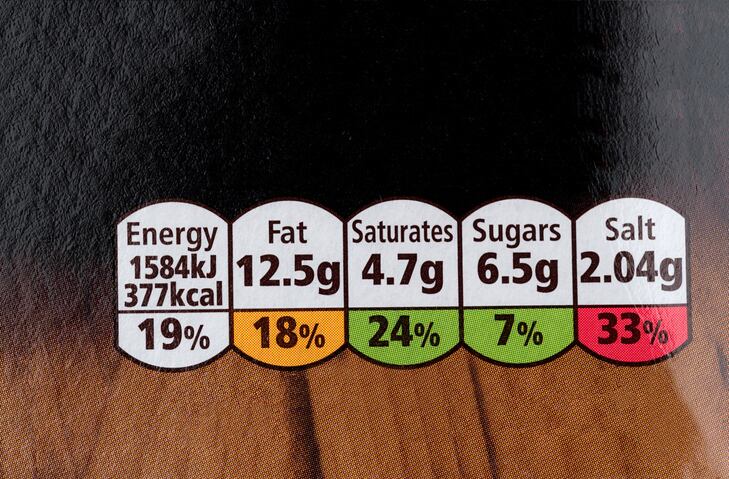The research, which analysed all snack products included as part of meal deals across eight retailers, claimed Asda and Subway were the worst offenders providing the highest proportion (82%) of unhealthy snacks HFSS in their meal deal promotions.
Next up were Co-op and Shell, with more than three quarters of their snacks on offer deemed unhealthy. By comparison, Morrisons offer a marginally healthier proportion of snacks, although they were still within a majority at 63% HFSS.
Nutrition and health-based claims
Despite nearly two thirds (63%) of snacks having some form of perceived nutrition or health-based message (these include claims such as ‘vegan’, ‘No MSG’, ‘No artificial colours or preservatives’, ‘high protein’, ‘low fat’, ‘only Xkcal’, ‘Gluten free’ etc) on pack or in the product description, 70% of them would score as a HFSS food.
The group said marketing claims used in meal deals often mislead consumers by creating a ‘health halo’ and discouraging shoppers from scrutinising the label more thoroughly. For example, Peperami includes health messages: ‘protein kick’ and ‘112kcal per stick’ yet it contains 3.9g salt per 100g.
Most snacks surveyed with nutrition and health messaging on pack across stores were HFSS. The worst offender being Subway with 83%, followed by Asda (82%) and Shell (80%). No food retailer did not use this marketing tactic excessively.
Sainsbury’s ranked more favourably, offering a higher proportion of non-HFSS snacks with a greater overall compliance to the salt reduction targets. In contrast, Subway scored among the lowest for their meal deal snack offering.
Stronger regulation demanded
Despite nearly two decades of voluntary efforts to get the food industry to reduce the huge and unnecessary amounts of salt in our food, many of these snacks contain far too much salt. Co-op Lemon and Coriander Green Olives is the worst offender with 2.02g salt per pack – that's the equivalent of 5x portions of salted peanuts and a third of an adult’s maximum daily recommended salt intake.
Whilst these snacks fall under various government salt reduction targets for the food industry to work towards, overall, a third (30%) of meal deal snacks exceed their maximum salt target, in particular meat products and biscuits. Snacks bought on a meal deal in Morrisons are more likely to fail to meet their salt target (46%) compared to snacks sold at Sainsbury’s (19%).
The group is now demanding the Government enforce stronger measures to improve the nutritional quality of food by introducing mandatory comprehensive salt reduction targets with penalties for those food companies who fail to comply. The group of experts is calling on retailers to only offer healthier (non-HFSS) snacks as part of all meal deals. One in three of UK consumers buy a meal deal at least twice a week, the group estimated.
Sheena Bhageerutty, Assistant Nutritionist at Action on Salt, said: “Without doubt, meal deals are hugely popular especially amongst the nation’s workforce looking for a convenient and ‘value for money’ lunch. Yet unbeknown to many consumers, these meal combos and snacks are often exceedingly high in salt which means an adult can consume their maximum daily recommended salt intake in just one meal without even knowing it. Rather than trying to ‘upsell’ us on salt, saturated fat and sugar, CEOs of food retailers must act more responsibly by setting strict internal standards including only healthier snack options as part of the ‘deal’.”
Graham MacGregor, Professor of Cardiovascular Medicine at Queen Mary University of London, and Chairman of Action on Salt, added: “Reducing salt is the most cost-effective measure for lowering blood pressure and reducing the number of people suffering and dying from strokes, heart disease and life changing disabilities associated with this – all of which is completely avoidable. Given the fact that food companies have the very simple option to reformulate with less salt and help prevent the many thousands of people who currently die unnecessarily, it’s remarkable that very few companies choose this option. This is why the Government must enforce its comprehensive salt reduction targets without delay.”


